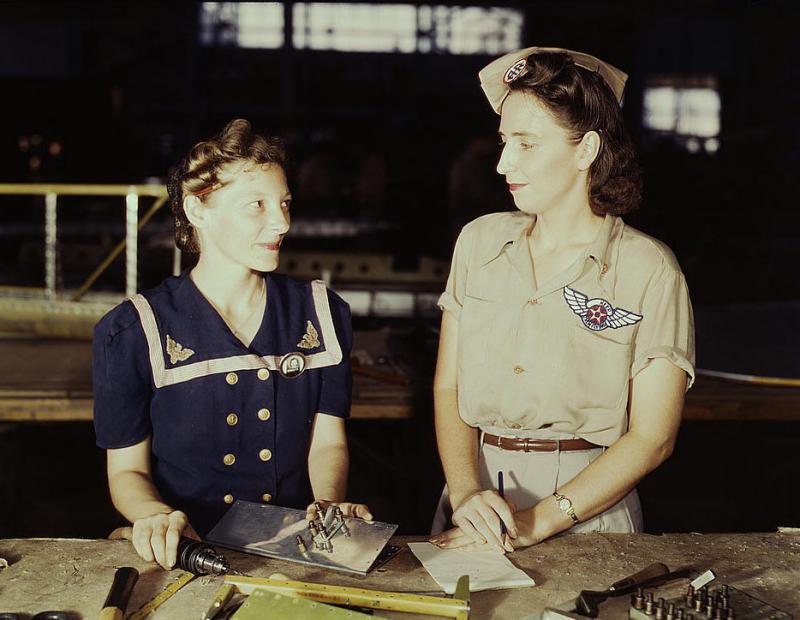The following is an excerpt from a radio address by President Franklin Roosevelt on October 12, 1942. President Roosevelt used the radio to communicate important messages and speeches to the American people during the Great Depression and World War II. These radio deliveries are known as "fireside chats" and were an important part of Roosevelt's presidency.
In order to keep stepping up our production, we have had to add millions of workers to the total labor force of the Nation. And as new factories came into operation, we must find additional millions of workers.
This presents a formidable problem in the mobilization of manpower.
It is not that we do not have enough people in this country to do the job. The problem is to have the right numbers of the right people in the right places at the right time.
We are learning to ration materials, and we must now learn to ration manpower.
The major objectives of a sound manpower policy are:
First, to select and train men of the highest fighting efficiency needed for our armed forces in the achievement of victory over our enemies in combat.
Second, to man our war industries and farms with the workers needed to produce the arms and munitions and food required by ourselves and by our fighting allies to win this war.
In order to do this, we shall be compelled to stop workers from moving from one war job to another as a matter of personal preference; to stop employers from stealing labor from each other; to use older men, and handicapped people, and more women, and even grown boys and girls, wherever possible and reasonable, to replace men of military age and fitness; to train new personnel for essential war work; and to stop the wastage of labor in all non-essential activities.
There are many other things that we can do, and do immediately, to help meet (the) this manpower problem.
The school authorities in all the states should work out plans to enable our high school students to take some time from their school year, (and) to use their summer vacations, to help farmers raise and harvest their crops, or to work somewhere in the war industries. This does not mean closing schools and stopping education. It does mean giving older students a better opportunity to contribute their bit to the war effort. Such work will do no harm to the students.
People should do their work as near their homes as possible. We cannot afford to transport a single worker into an area where there is already a worker available to do the job.
In some communities, employers dislike to employ women. In others they are reluctant to hire Negroes. In still others, older men are not wanted. We can no longer afford to indulge such prejudices or practices.
Every citizen wants to know what essential war work he can do the best. He can get the answer by applying to the nearest United States Employment Service office. There are four thousand five hundred of these offices throughout the Nation. They (are) form the corner grocery stores of our manpower system. This network of employment offices is prepared to advise every citizen where his skills and labors are needed most, and to refer him to an employer who can utilize them to best advantage in the war effort.
Perhaps the most difficult phase of the manpower problem is the scarcity of farm labor in many places. I have seen evidences of the fact, however, that the people are trying to meet it as well as possible.
In one community that I visited a perishable crop was harvested by turning out the whole of the high school for three or four days.
And in another community of fruit growers the usual Japanese labor was not available; but when the fruit ripened, the banker, the butcher, the lawyer, the garage man, the druggist, the local editor, and in fact every able-bodied man and woman in the town, left their occupations, (and) went out gathering(ed) the fruit, and sent it to market.
Every farmer in the land must realize fully that his production is part of war production, and that he is regarded by the Nation as essential to victory. The American people expect him to keep his production up, and even to increase it. We will use every effort to help him to get labor; but, at the same time, he and the people of his community must use ingenuity and cooperative effort to produce crops, and livestock and dairy products. It may be that all of our volunteer effort — however well intentioned and well administered — will not suffice wholly to solve (the) this problem. In that case, we shall have to adopt new legislation. And if this is necessary, I do not believe that the American people will shrink from it.
In a sense, every American, because of the privilege of his citizenship, is a part of the Selective Service.
